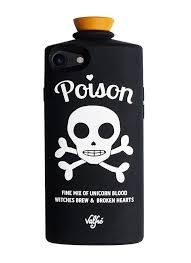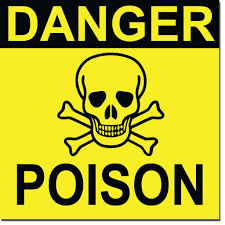Any substance when administered ,inhaled,or swallowed having deleterious effects on the body is considered poisonous.

Types of poisons:
There are various types of poisons which can be classified as follows,
- Suicidal poison(KCN.HCN,opium)
- Homicidal poison(arsenic,aconite,antimony,strychine)
- Stupefying poison(belladona,dhatura,cannabins indica)
- Accidental poison( snakebite,scorpion bite)
Fate of poisons in human body:
- Exert local actions like corrosion or irritation at the site of introduction.
- Cause vomiting
- Rest of the poison get absorbed in the blood
Signs and symptoms in poisoning:
Acute poisoning:
In acute poisoning,symptoms start appearing immediately after intake of poison.
Signs and symptoms mainly depend on route of administration,however,main symptoms are,
- Repeated attacks of vomiting.Every poison has specific smell of vomitus and colour
- Cyanide…….bitter almond like smell
- Sulphuric acid………black vomitus
- Mercury……..grayish white vomitus
- Arsenic……….coffee ground vomitus
- Alcohol……..ether smell
- Phosphorus……luminous in dark,garlic like odour
- Acetic acid….vinegar like odour
- Diarrhea
- Convulsions and comma
- Temperature is increased
- Pulse is rapid
- Blood pressure increases in case of Dhatura while decreases in acute barbiturate poisoning
- Respiratory rate is depressed in case of alcohol and opioid etc.
- Dry ,flushed skin
Chronic poisoning:
Signs and symptoms develop slowly and gradually. Mostly the symptoms are
- Malaise
- Abdominal pain
- Paralysis
- Neuropathy
- Hyperpigmentation of skin and appearance os transverse bands on nails called Mee’s line appear in chronic arsenic and thallium poisoning.
- Mercurial tremors in mercury poisoning
- Posy jaw in chronic phosphorus poisoning
- Cocaine bugs in chronic cocaine poisoning
- Delirium,tremors,korsakoff’s psychosis in chronic alcohol poisoning
General nursing care:
- Keep the patient warm and comfortable
- Maintain adequate airway
- Monitor vitals
- Physiotherapy and rehabilitation
- Prophylactic antibiotics to avoid respiratory infection
- In suicidal cases,supportive psychotherapy.






